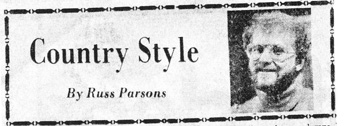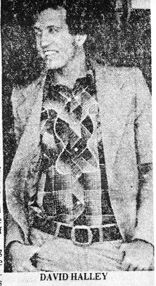Fire in the Water, Earth in the Air: Legends
of West Texas Music
by Christopher Oglesby
Published by the University
of Texas Press:
"As a whole, the interviews create
a portrait not only of Lubbock's musicians and artists, but also
of the musical community that has sustained them, including venues
such as the legendary Cotton Club and the original Stubb's Barbecue.
This kaleidoscopic portrait of the West Texas music scene gets
to the heart of what it takes to create art in an isolated, often
inhospitable environment. As Oglesby says, "Necessity is
the mother of creation. Lubbock needed beauty, poetry, humor,
and it needed to get up and shake its communal ass a bit or go
mad from loneliness and boredom; so Lubbock created the amazing
likes of Jimmie Dale Gilmore, Butch Hancock, Terry Allen, and
Joe Ely."
"Indeed, Oglesby's introduction of more
than two dozen musicians who called Lubbock home should be required
reading not only for music fans, but for Lubbock residents and
anyone thinking about moving here. On these pages, music becomes
a part of Lubbock's living history."
- William Kerns, Lubbock Avalanche Journal
|
Country Style was an entertainment column
written by Russ Parsons for the Lubbock Avalanche Journal in
the 1980s, a fertile time in Lubbock music history. He has graciously
shared many of his articles with us at www.virtualubbock.com
for our readers' enjoyment.
Russ Parsons currently is the food editor for the Los Angeles
Times.

LUBBOCK AVALANCHE JOURNAL
(posted on www.virtualubbock.com by
permission of author)
Sunday Morning May 25, 198? P. 6-E
It's always a surprise to me when I find out somebody really
reads my columns. I mean, I know my wife does. I sit there and
watch her to make sure she finishes the whole thing. Other than
that, though, it's a kind of pleasant shock when someone actually
pays attention to what I say.
Usually, writing this thing is more like shouting at the desert.
You can yell as loud as you want, but all that answers is a great
silence. As you can imagine, 'that'., tithe anticlimactic for
the kind of egomaniac that finds himself drawn to scribbling
things in the public columns
So you can picture my state when I was awakened one Sunday morning
a couple of weeks ago by someone interested in something I'd
written in one of these columns. First of all, it was about 9
a.m., not the best time to try and get information from a writer
working for a morning paper. Secondly, the bit that had caught
my caller's eye was just a little note I'd dropped in to, well
OK, I confess, to fill space.
The bit, not more than four or five paragraphs rewritten from
a press release, gave information about the songwriters' competition
being held in conjunction with the Kerrville Folk Festival and
the caller was David
Halley, a local guitar player of some note. He was interested
in sending some tapes in to the festival, and needed some more
information in a hurry. The deadline was only a couple of days
off. (OK, so my desk is cluttered),
Well, to make a long story short (or shorter) if you think I'm
surprised when somebody reads the stories, imagine my shock when
it actually pays off.
Today, Halley and another Lubbock musician, Brad Seymour, will
be performing their works on the folk festival stage along with
40 other fledgling songwriters. Should the panel of judges (including
Guy Clark and Bob Gibson, the guy who wrote "Abilene"
and "Michael, Row Your Boat Ashore") like their tunes,
they'll be among the six finalists invited back to play Monday.
Those six will each receive $50, but that's little more than
gas money really. The real reward is the recognition. That's
something that comes dear to guys who normally play to living
room furniture.
Halley, who played lead for Butch
Hancock's latest album and can usually be seen atop the small
stage at Jug Little's Barbeque on Tuesday afternoons, says he
really doesn't consider his songs folk music, not in the purest
sense of the form. But then again he's not going to let that
stop him.
"Really, there's hardly anything that happens that's not
folk music in a sense," he said. "I don't think mine
is really. I guess it's kind of yes and no. As pure songs, they're
not written in the pure folk music style. But the way I figure
it, at Kerrville, I'm sure you're going to hear people doing
material that isn't strictly folk.
"I think I'm writing more country and western tunes but,
on the other hand, some of them come closer to folk than to a
lot of stuff."
Asked to compare his work to an existing writer, Halley was stumped.
"It would be hard to name an artist I sound like,"
he said.
"'Hard Living' could be a Hank Williams's tune. 'Rain Just
Falls.' I always heard Willie Nelson doing that one.
"One of the songwriters I admire, the most is Rodney Crowell.
As far as somebody who is doing something interesting and yet
doing a lot of stuff that is still available to the public, he
pretty well gets it. But at the same time, I wouldn't say I was
pretty much along the same lines.
"When I was first developing, the songwriter who influenced
me were, I'd have say Butch (Hancock) to a large extent, Jackson
Browne, Willis Alan Ramsey. Robby Robertson of the Band. But
I didn't ever consciously emulate anybody's writing style It
was more like I'd stumble across something that I'd recognize
as being part of a certain genre. Then, in developing the rest
of the song, I'd play it up into that genre."
Halley, like so many good new songwriters, has forsaken the familiar
"moon June" rhyming patterns and the "she loves
me/she doesn't love me" storylines,
"The thing that really gets me about a song is when somebody
says something that strikes a fairly deep chord in me, but also
says it well," he said. "Sometimes, as a songwriter,
I've just come across things. I mean, the good stuff in my songs
is almost always a kind of an accident. There'll be one line
or a twist of a phrase or something like that that I don't know
where it came from. I'm surprised by it and I'm impressed( by
it as if somebody else had written it.
'The songs of mine that I like, I wind up liking as songs pretty
"The songs of min. that I like. I wind up liking as songs
pretty impartially. THEN the ego trip comes in You say. 'Yeah.
I wrote it, It's mine.' But at the moment I wrote it, it's a
huriblin, experience in the purest sense because you know the
stuff doesn't come from you. I Just kind of fillers down through
you. That's the good stuff."
Halley comes from a musical family. His brother Mike is the lead
guitar player lot jazz band Chameleon, which will be the featured
band at Rox every Sunday starting next month. Still, he says
both guitar playing and songwriting are hard work, a drudgery
for him.
"I guess in a way, songwriting and guitar playing have both
been something of chores to me because, to advance, I've got
to work really hard at both of them. In guitar playing, you practice
and practice and practice as much as the stuff you've tried to
learn. But still, all that practicing makes a big difference.
You're more solid. You can play what you hear better,
"With songwriting, it's somewhat the same way. You work
and you work at it. I've got songs that are still unfinished
after three years. There's the temptation to cheat a little,
maybe get a rhyming dictionary. But every time I think about
doing that, some thing in the back of my mind tells me that there
are a lot of hacks out there. I try to studiously avoid doing
that. Maybe I don't finish the song, but that's preferable to
me than having a big piece of schlock."
Asked what his hopes were for his break at the folk festival,
Halley said "I've fantasized a lot about it, but I guess
my most realistic hope is that from the overall experience I'll
get the kind of encouragement to keep on writing and to work
harder on it. Like, if it should work out that I was one of the
six chosen to play Monday, that would be like somebody saving
to me "Yeah, you've got something worth working on.'
"Of course, if I don t get selected, even if it's real obvious
to me that they don't like me or something like that, that's
not going to affect me because I believe in the tunes that I've
written.
'You know, I guess I'm always surprised when somebody likes my
songs. I play the songs in kind of a hopeful mood, but I'm always
surprised when somebody else knows where I'm at, when somebody
else knows what's good about it. Even if they like it for whatever
reason, it's a rush."
More articles by Russ Parsons
Butch Hancock - Joe Ely, Buddy Holly & Joey Allen - Jimmie Gilmore - Larry Welborn
or
Return to Home
|




